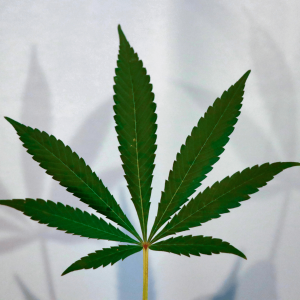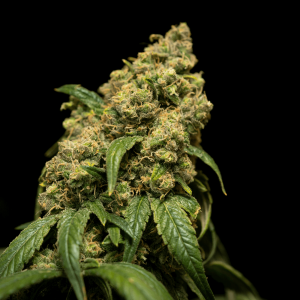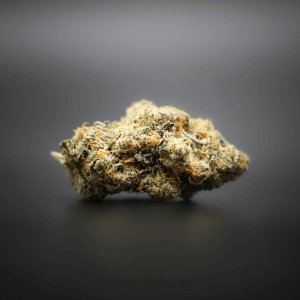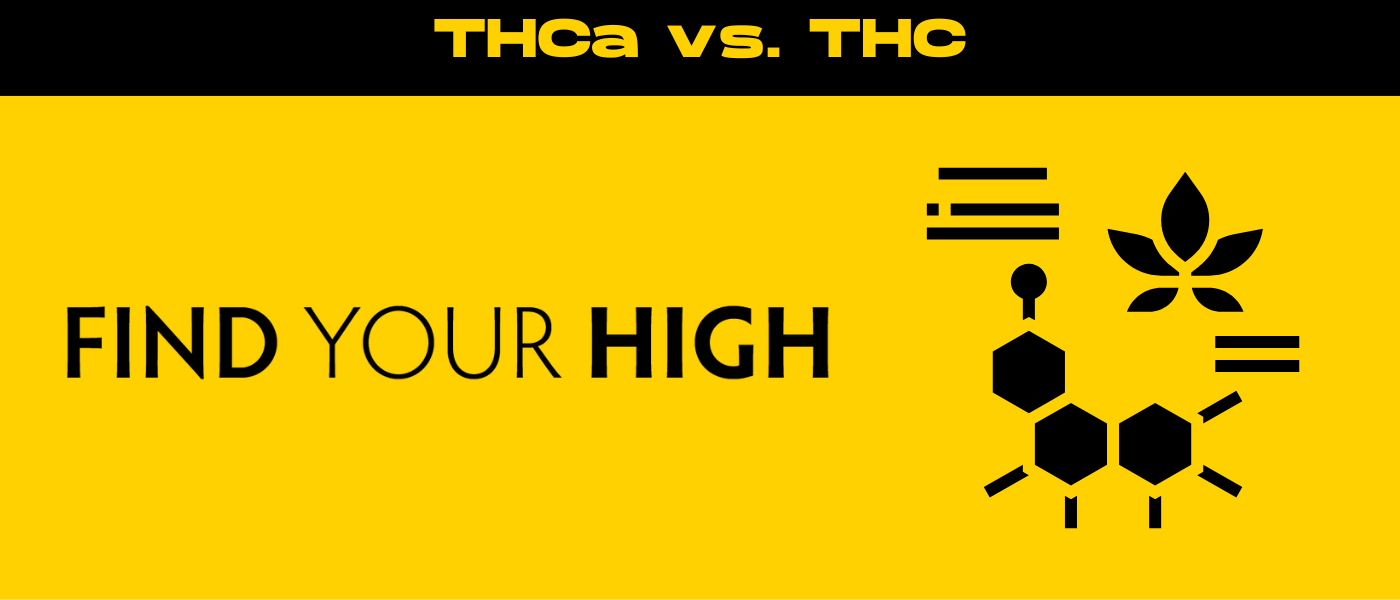When it comes to cannabis compounds, THCa vs THC are often easily mistaken for twins, sparking some pretty ‘high’ confusion!
But no worries, let’s dive into this with our main characters: THCa, the chill non-psychoactive precursor found in raw and live cannabis, and THC, the superstar of the cannabis family, famous for its mind-altering effects that really make the party come alive.
In this botanical showdown, we’ll uncover the differences and effects, so that by the end, you’ll be well-acquainted with these two and free from any hazy mix-ups. Let’s get started!
Meet THCa
THCa, or tetrahydrocannabinolic acid, might not grab the headlines like THC, but it certainly deserves a moment in the spotlight.
THCa is a raw, non-psychoactive cannabinoid that resides abundantly in a live and freshly picked cannabis plant. Note that the cannabis plant produces over 100 other cannabinoids, and THCa happens to be among those cannabinoid compounds.
THCa’s prime position in the cannabis lifecycle is crucial – it’s the origin from where THC itself is born through a chemical reaction called decarboxylation, often occurring through drying and heating.
What is THCa and Its Presence in Raw Cannabis?
Unlike its famous counterpart, THC, THCa does not induce euphoric effects. It is found in its acidic (cannabinoid acid) form in live, raw cannabis plants, serving as a sort of ‘chemical parent’ to THC.
When freshly harvested cannabis begins to dry, or when it is heated (like when smoking or vaporizing), THCa molecules slowly convert to THC, changing its chemical structure and unveiling the psychoactive effects renowned in recreational use of the marijuana plant.
Myth-busting: Is THCa Just Lazy THC?
The common misconception that THCa is just a non-active version of THC — a ‘lazy’ compound within the cannabis plant, if you will — couldn’t be further from the truth.
THCa has its unique identity and role in the cannabis plant’s chemistry. It’s not simply a dormant molecule waiting to become THC; rather, it is a distinct compound with its own set of benefits and uses.
Studies suggest THCa has anti-inflammatory and neuroprotective properties, making it of interest for therapeutic applications without the high. As research unfolds, we continue to learn more about THCa’s potential, separate from the psychoactive journey it undergoes to become THC.

Meet THC
THC, or Delta-9-tetrahydrocannabinol, is the best-known cannabis compound and the main psychoactive ingredient that has catapulted the cannabis plant to stardom.
After THCa undergoes decarboxylation—a fancy term for heating it up—it says goodbye to its acidic form and transforms into the THC we’re all familiar with.
What is THC and Its Effects Post-Decarboxylation?
Once transformed, THC binds with the brain’s cannabinoid receptors, which is where all the magic happens, nudging into motion the trademark ‘high.’
The effects include altered senses, time perception, and mood swings, often accompanied by improved appetite and reduced discomfort.
THC has also carved a niche for itself in medicinal circles, prescribed for pain relief, nausea, and various other health disorders. With that being said, medical marijuana is often prescribed to patients to better manage their symptoms.
THC in the Limelight: A Cultural Icon
In pop culture, THC is a symbol of counter-culture. It has been referenced in countless songs, movies, and TV shows, forming a cornerstone of the ‘stoner’ identity.
THC’s fame has grown in step with the legalization movement, positioning cannabis as both a lifestyle choice and a legitimate therapeutic agent.
Celebrity endorsements and 4/20 events continue to perpetuate THC’s celebrity, making it a household name and a staple in discussions about cannabis legalization and culture.

Chemistry 101 – Decarboxylate Like a Pro
It’s time for a little Chemistry 101 where we turn non-psychoactive THCa into THC. Pop on those goggles and let’s decarboxylate like a pro with a tongue-in-cheek “recipe” guide:
Ingredients:
- Your choice cut of raw cannabis, rich in THCa
- Heat (oven, lighter, or vaporizer – your call!)
- Patience (let’s not burn the good stuff)
Prep Work:
- Preheat your oven to 220°F (104°C) – not too hot, not too cold, but just right for cannabis alchemy.
- Finely grind your greenery – think of it like chopping garlic. The smaller, the better for even heat distribution.
Cooking Time:
- Spread your cannabis flower evenly on a parchment-lined baking sheet. Be sure not to crowd the buds, meaning do not situate them too close together.
- Slide the sheet into the oven and bake for 30-45 minutes, or until your kitchen smells like you’ve just walked into a dispensary.
The Transformation:
- After the buzzer goes off, let it cool – the THCa is now shedding its ‘A’.
- Now, once cooled, you have yourself some THC! But remember, without proper infusion into edibles, applying direct flame, or vaporization, it’s not going to produce a high.
Safety Tip:
Always remember, with great power comes great responsibility. Dosing can be tricky, so whether you’re into creating edibles or just enjoying a good vape, go slow.
The Effects of THCa
While THCa is the gentle precursor to its more famous sibling, don’t underestimate its presence. Think of THCa as a soft pillow, offering a promise of support and comfort without a jolt to the senses.
Without the psychoactive punch, it bears therapeutic properties that release quietly into the body, providing relief and peace like a relaxed embrace. THC, on the other hand, is a rocket, propelling you into a different orbit of consciousness with its potent psychoactive effects.
Once activated, THCa still sends users on a voyage through altered states, creating an exhilarating and intense experience that can redefine sensations, emotions, and perception.
The Entourage Effect – Better Together?
The concept known as the “entourage effect” implies that cannabinoids such as THCa and THC work together to define the overall magic of cannabis.
Picture the level-headed, non-psychoactive THCa paired with the potent, high-inducing THC, both working together to enhance each other’s strengths while offsetting any weaknesses. The theory suggests that when consumed together, they may provide synergistic benefits that neither compound could achieve alone.
For example, THCa may cover the therapeutic bases with its anti-inflammatory and neuroprotective properties, while THC steps into the spotlight to provide relief from pain and nausea. This partnership could offer a more balanced experience.
While research on the entourage effect is still unfolding, early studies hint at the possibility of a more nuanced interaction between cannabis compounds.

THCa vs. THC in the Legal Landscape
Navigating the hazy legality of cannabis compounds can be tricky. There’s THCa, which is tolerated if not fully accepted, in many regions due to its potential therapeutic benefits and absence of a ‘high.’
On the flip side, THC continuously stirs controversy and sparks debates with its psychoactive flair. In many parts of the world, this notoriety subjects THC to stricter legal constraints or outright bans, casting it as the cannabinoid black sheep in the eyes of the law.
Together, both THCa and THC encapsulate cannabis’s complex legal and social standing, a lucid illustration of how subtle differences in molecular structure lead to monumental divergences in legal acceptance and societal perception.
THCa vs. THC: A Medical Perspective
For health enthusiasts wanting to dive into the nuanced world of cannabis wellness, understanding the distinction between THCa and THC is crucial.
Let’s explore the medical landscape where these two cannabinoids exhibit their unique therapeutic potential.
The Therapeutic Benefits of THCa
THCa, the raw non-psychoactive predecessor of THC, has been recognized for its medicinal prospects. With no intoxicating effects, it presents itself as a candidate for those seeking relief without the ‘high’.
Research indicates that THCa may have anti-inflammatory, neuroprotective, and anti-proliferative qualities, meaning it could potentially aid in reducing inflammation, protecting nerve cells, and even slowing the growth of certain cancer cells.
For individuals dealing with conditions like arthritis, epilepsy, or neurodegenerative diseases, THCa offers a beacon of hope, possibly improving quality of life discreetly and effectively.
THC: The Pain Reliever and Mood Enhancer
Post-decarboxylation, THC often takes the spotlight for its ability to ease various symptoms. It’s widely recognized for its pain-relieving properties, making it a go-to for those with chronic pain, such as sufferers of multiple sclerosis or fibromyalgia.
Additionally, THC’s ability to act as an antiemetic and appetite stimulant makes it invaluable for patients undergoing chemotherapy or those dealing with eating disorders.
And let’s not overlook its potential to elevate mood and provide relief from stress and anxiety, further accentuating its role in a comprehensive approach to well-being.
Conversation with Clinicians
To the health-savvy reader, remember that integrating cannabis into your wellness regimen should be a decision made with careful consideration and professional guidance.
Dialogue with healthcare providers is essential to tailor a plan that takes into account personal health goals, potential drug interactions, and the legal status of these compounds wherever you live.
Health gurus, whether you’re drawn to the silent strength of THCa or the pronounced impact of THC, the exploration of their medicinal benefits is full of potential. And as research evolves, so does our understanding of how these cannabinoids can be used for their healing properties, offering a natural addition or alternative to traditional medicinal treatments.

THCa vs THC: Dosage
Just as a master mixologist artfully navigates the delicate balance of flavors to mix the perfect cocktail, understanding the dosing of THCa and THC requires a nuanced touch.
With THCa, the emphasis is on precision and subtlety, blending it into your regimen without overpowering. THC, conversely, is the bold spirit base of this metaphorical concoction—a bit too much or too little can dramatically alter the desired effects.
While experienced cannabis consumers develop a sense for their own optimal dosage through trial and error, new consumers must approach dosing with patience and attentiveness, often guided by the ‘start low and go slow’ philosophy.
What’s Next for THCa and THC?
As cannabis science progresses, the future for THCa vs THC holds exciting possibilities.
Researchers are continuously unraveling the complexities surrounding these compounds, with the potential for innovative therapeutic applications on the horizon. We might even witness advancements in decarboxylation techniques that offer greater control over the conversion process, allowing users to personalize their experience with precision.
Moreover, there is anticipation of breeding initiatives to cultivate cannabis strains with specific ratios of THCa to THC, targeting medical conditions more effectively. Biotechnological advancements may also lead to the development of synthetic analogs with increased potency and reduced side effects.
On the legislative front, the movement toward cannabis legalization and destigmatization is expected to gain momentum, resulting in increased research funding and broader clinical trials. These trials could reveal conclusive evidence of the entourage effect, solidifying the value of whole-plant therapy in mainstream medicine.
The integration of big data and machine learning into cannabis research will enable predictive analytics for patient outcomes, refining dosing guidelines, and individualized treatment plans.
Ultimately, as our understanding deepens, the possibilities for harnessing these ancient molecules for future health and wellness innovations are limitless.

Conclusion
As we draw the curtain on our deep dive into the world of THCa and THC, it’s evident that the two compounds aren’t terribly different.
From the legal nuances that set THCa and THC apart to their distinct therapeutic potentials and dosing philosophies—both are complex. With the knowledge we’ve shared, you’re no longer just a spectator but an informed participant in the ever-evolving cannabis conversation.
Remember, whether it’s the silent, therapeutic hum of THCa or the more vivacious symphony of THC’s effects that calls to you, the key is educated exploration. As you stand at the threshold of cannabis wisdom, we invite you to step forward with curiosity and confidence. Who knows? Maybe the next groundbreaking discovery in cannabis science bears your name!
But before you swap your comfy couch for a lab coat, why not take your newfound insight for a test run? Experience the nuances of THCa and THC with Hyperwolf’s array of premium hemp products. Find your balance, lead the way in wellness innovation, and remember to enjoy the ride.
Frequently Asked Questions
Is THCa as potent as THC?
While THCa (tetrahydrocannabinolic acid) is a precursor to THC (tetrahydrocannabinol), it is not as potent in its natural state.
THCa is non-psychoactive and must undergo the process of decarboxylation, typically through heat, to convert into the psychoactive THC. This means that, although THCa may have its own set of benefits, it does not produce the “high” associated with THC until it is decarboxylated.
Consumers seeking the psychoactive effects typically associated with cannabis will find THC to be more potent and direct in delivering those effects.
Can THCa cause a high?
THCa on its own does not produce psychoactive effects and therefore does not cause a high in its raw or unheated form. The non-psychoactive properties of THCa are one of the fundamental differences between it and THC.
It is only when THCa is decarboxylated — that is, subjected to heat, light, or prolonged storage — that it converts into the psychoactive THC, famous for its mind-altering effects. That said, THCa requires transformation to unleash the euphoric attributes commonly sought by recreational cannabis users.
What does THCa do to your body?
THCa, or tetrahydrocannabinolic acid, is thought to have a variety of impacts on the body due to its role as a non-psychoactive cannabinoid.
With anti-inflammatory and neuroprotective properties, THCa has potential in medical applications such as reducing pain and potentially slowing the progression of neurodegenerative diseases. Some studies suggest that THCa might also have anti-proliferative effects which could play a role in combating the growth of cancerous cells.
Unlike THC, THCa does not bind to CB1 receptors in the brain in a way that produces psychoactive effects, making it a subject of interest for therapeutic use without the ‘high.’
However, the full spectrum of THCa’s health benefits and bodily effects is still being explored as the body of research on cannabinoids continues to grow.
Is there a difference between high THC and high THCa?
Yes, there is a significant difference between high THC and high THCa cannabis strains. The primary distinction lies in their chemical state and the effects they produce when consumed.
THCa (tetrahydrocannabinolic acid) is the non-psychoactive acidic precursor to THC. In its natural form, found in fresh cannabis plants, THCa does not induce the intoxicating high that THC is known for. High THCa strains are often used in raw cannabis products, such as juices or tinctures, for individuals who are looking to avoid the psychoactive effects while benefiting from other therapeutic properties.
On the other hand, high THC strains are associated with the classic psychoactive experience of cannabis. THC, or tetrahydrocannabinol, is produced through the process of decarboxylation. During decarboxylation, THCa is exposed to heat or UV light. High THC strains are sought after for their potency and the ‘high’ they provide, including feelings of euphoria, relaxation, and altered sensory perception.
The choice between high THCa vs THC strains depends on user preference and the desired therapeutic outcome. Those seeking relief without immediate intoxication may opt for high THCa products, while others looking for more pronounced psychoactive effects might choose high THC strains.

 Rewards
Rewards




